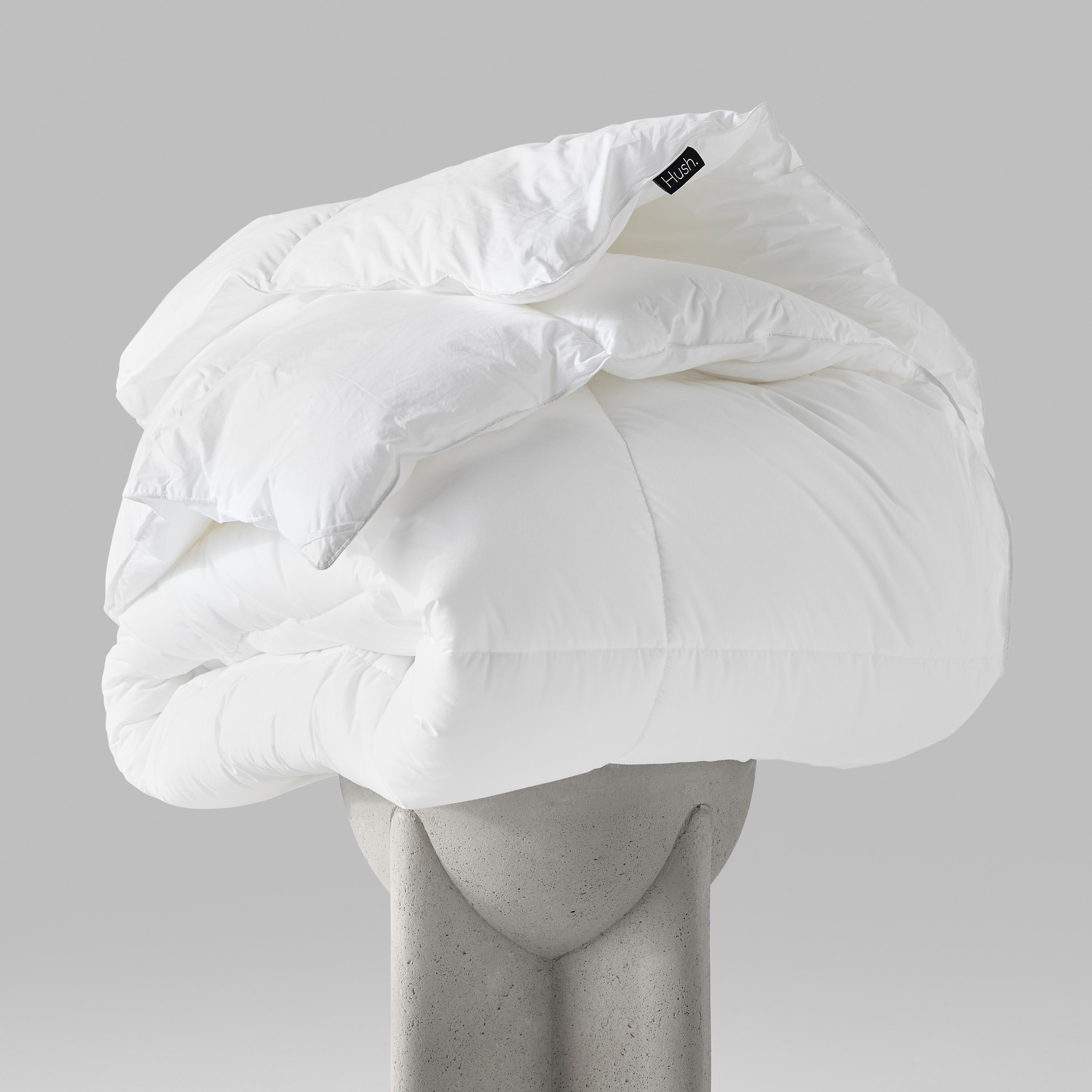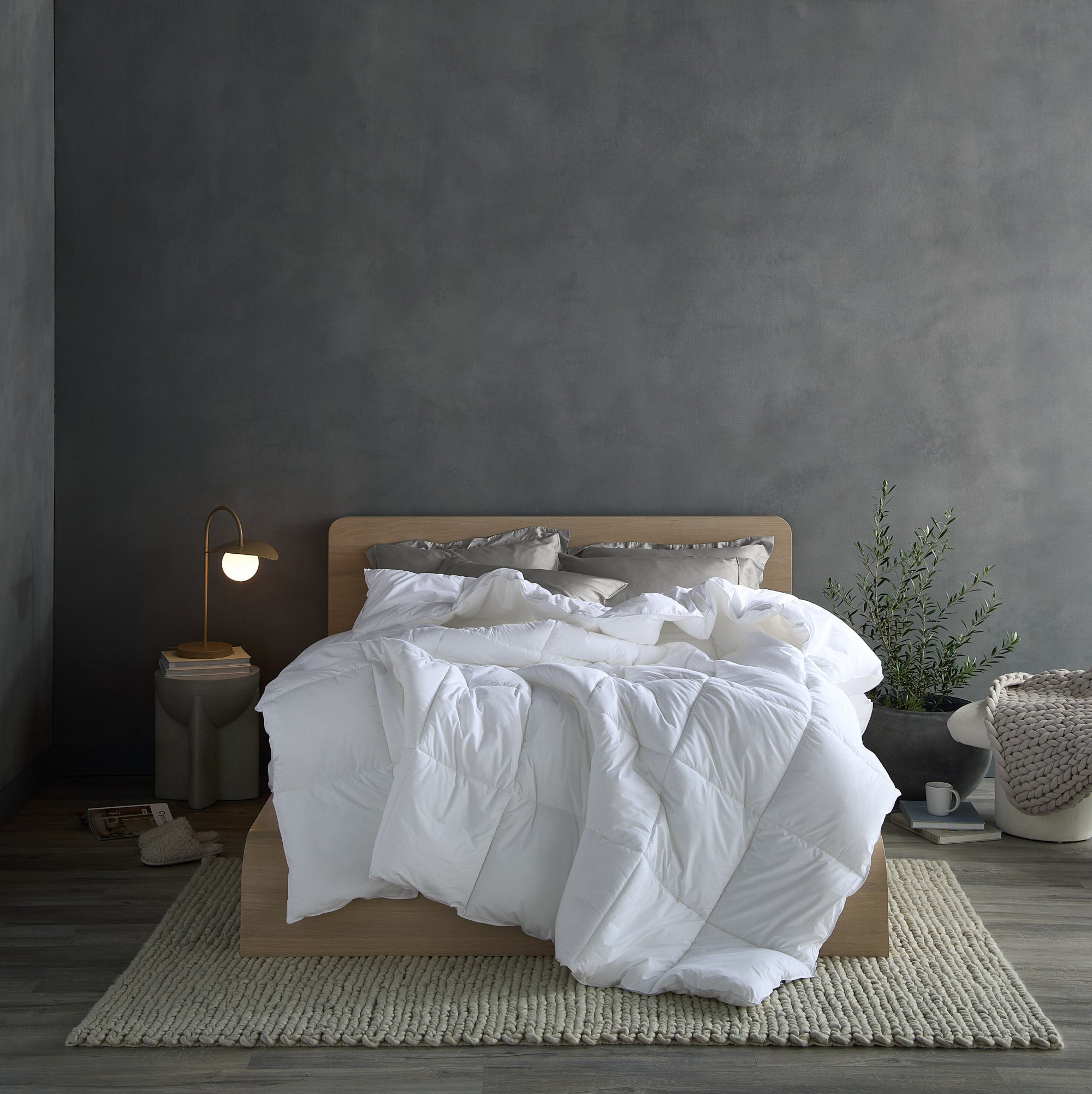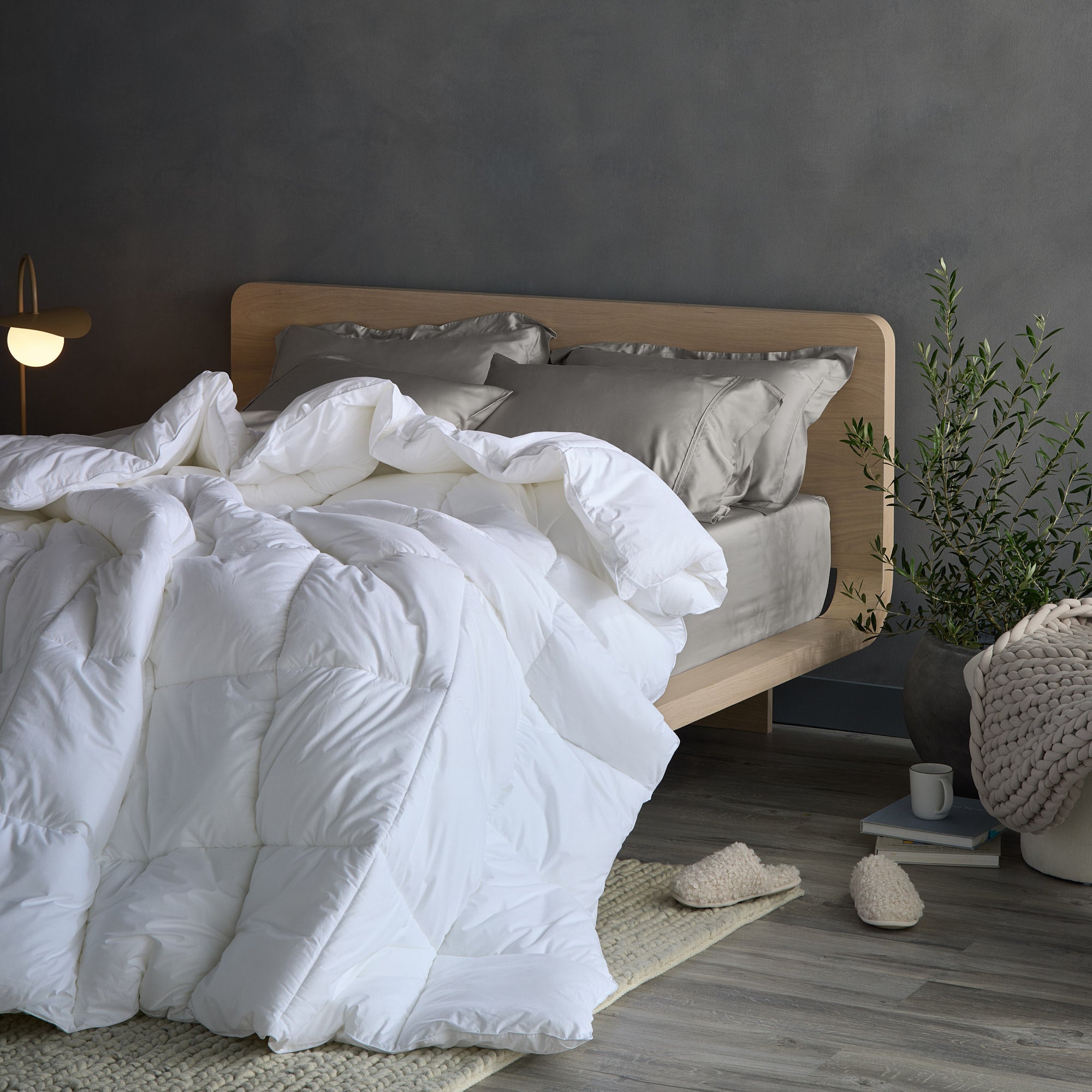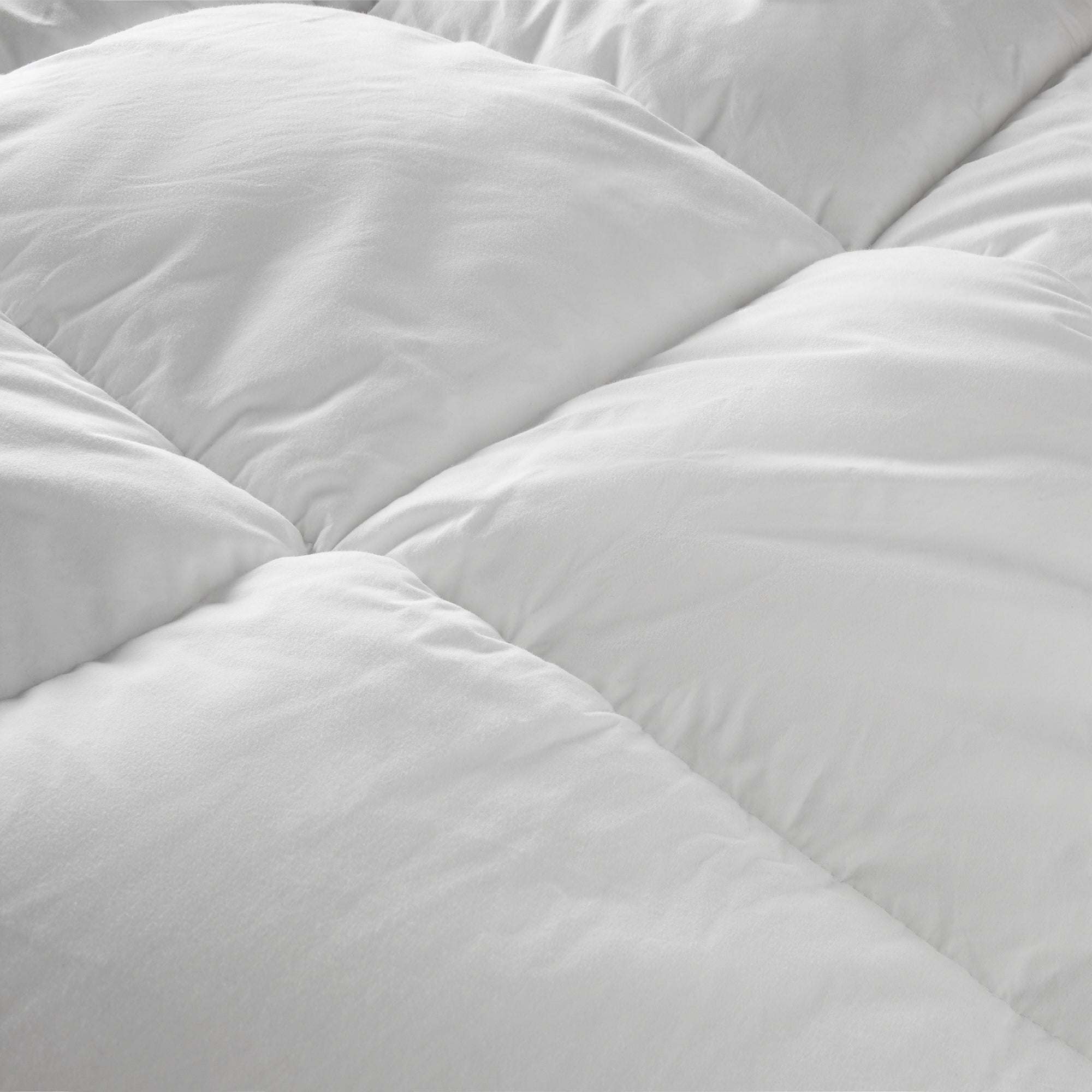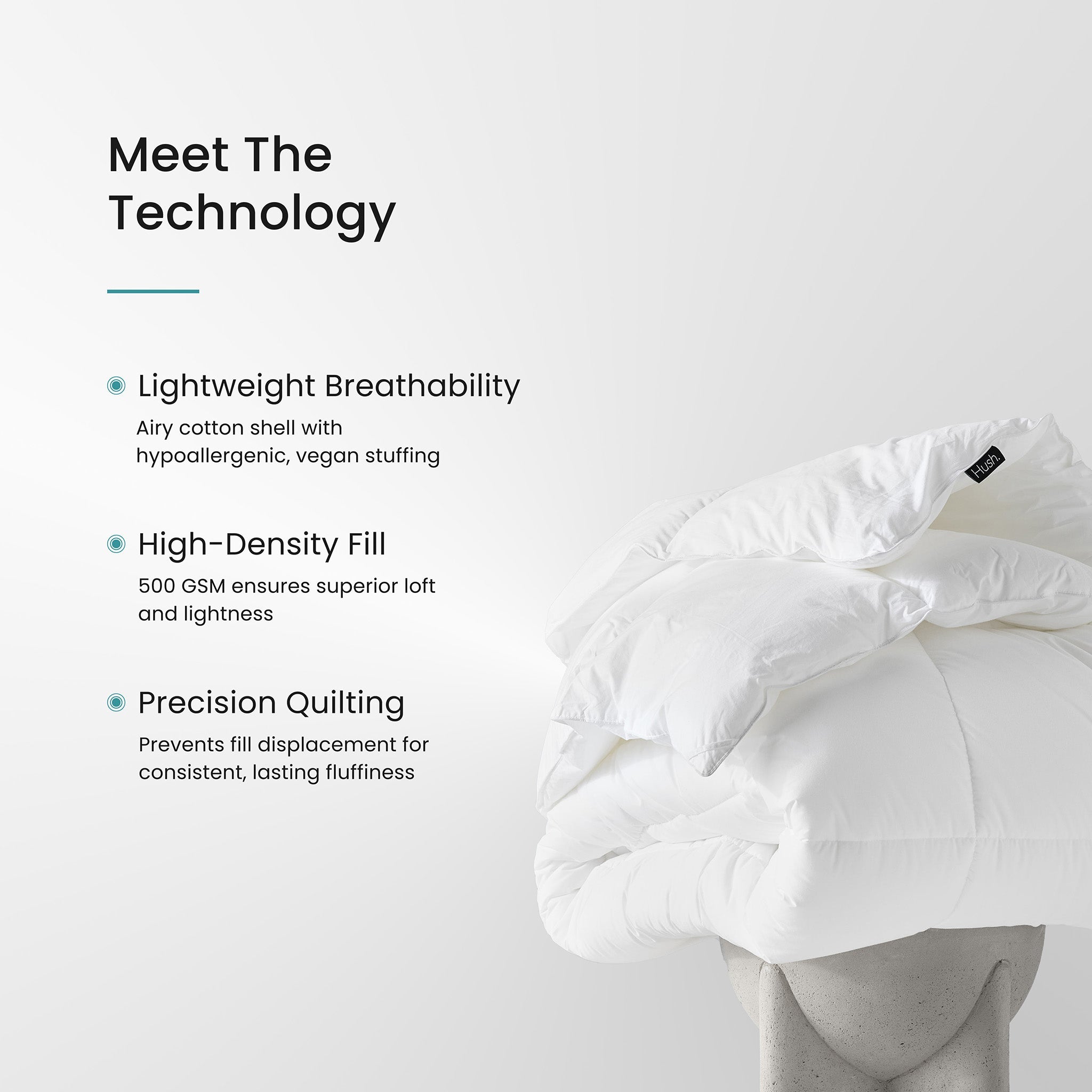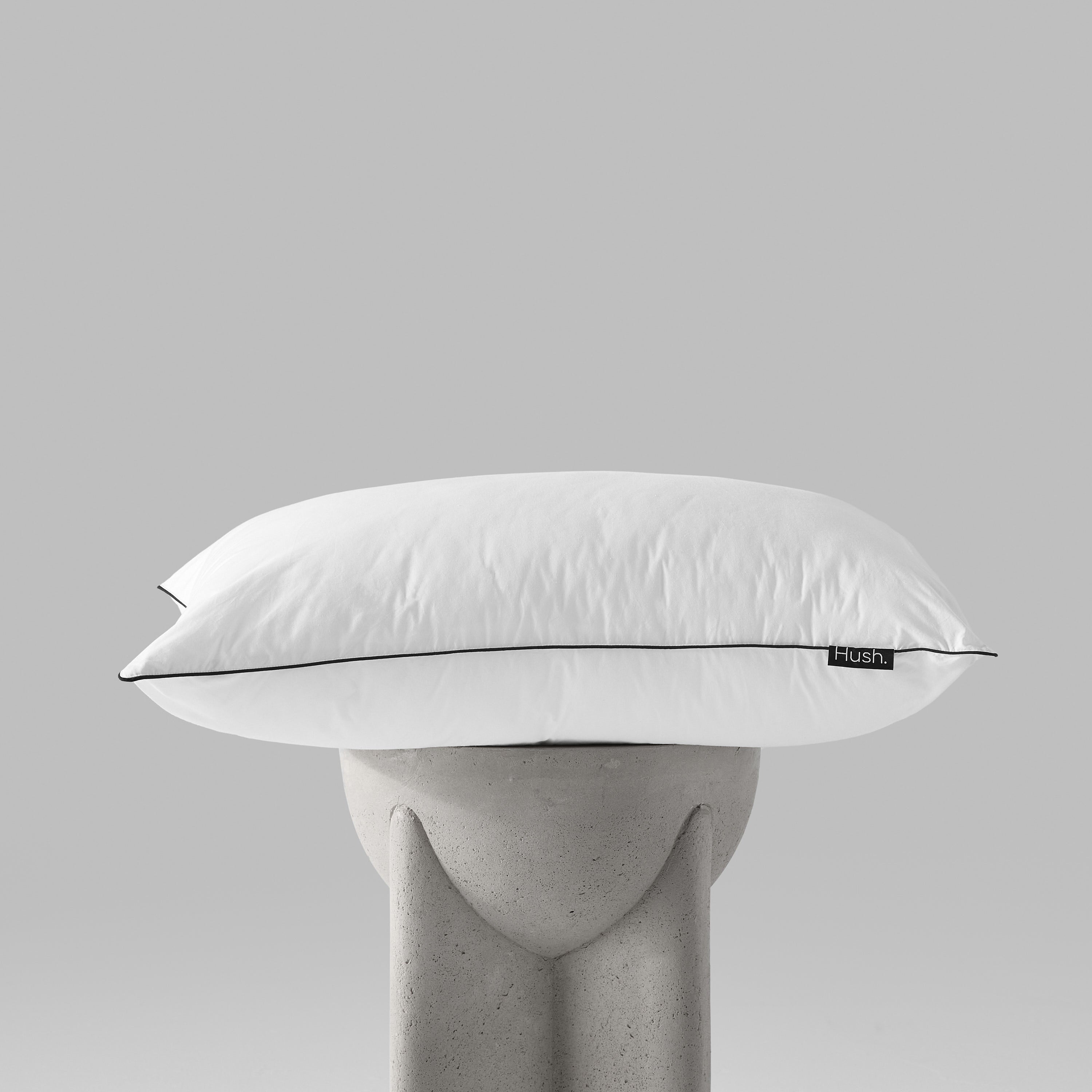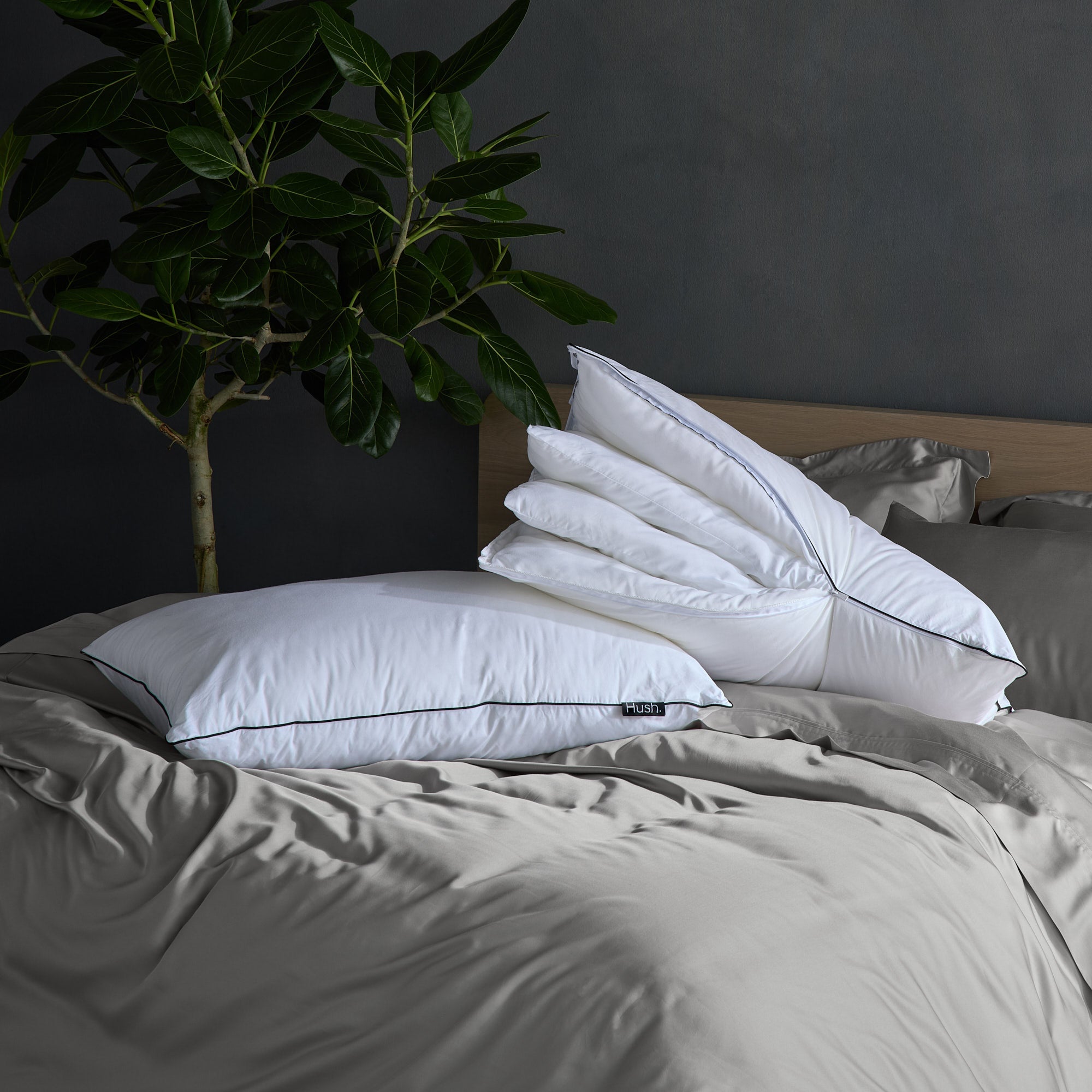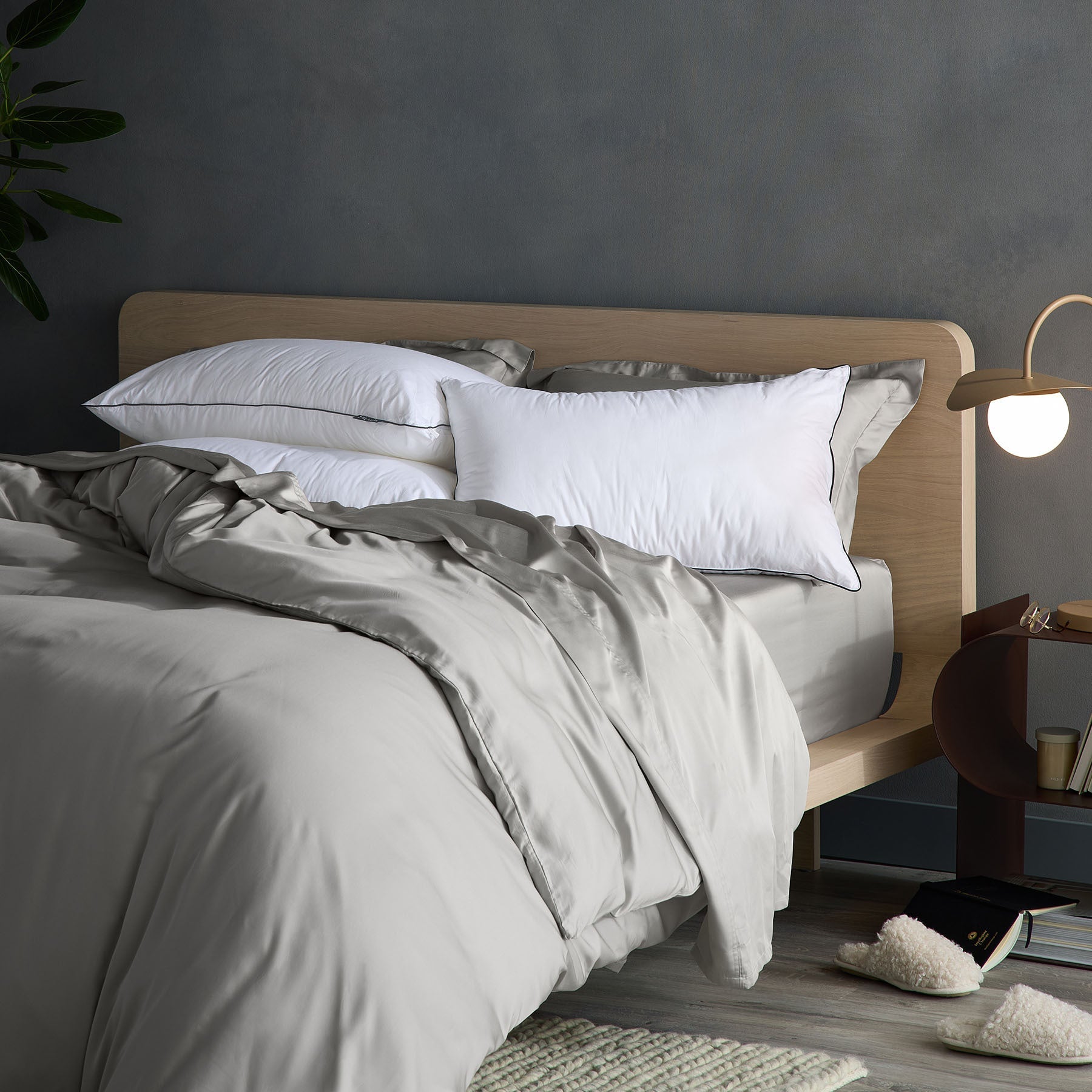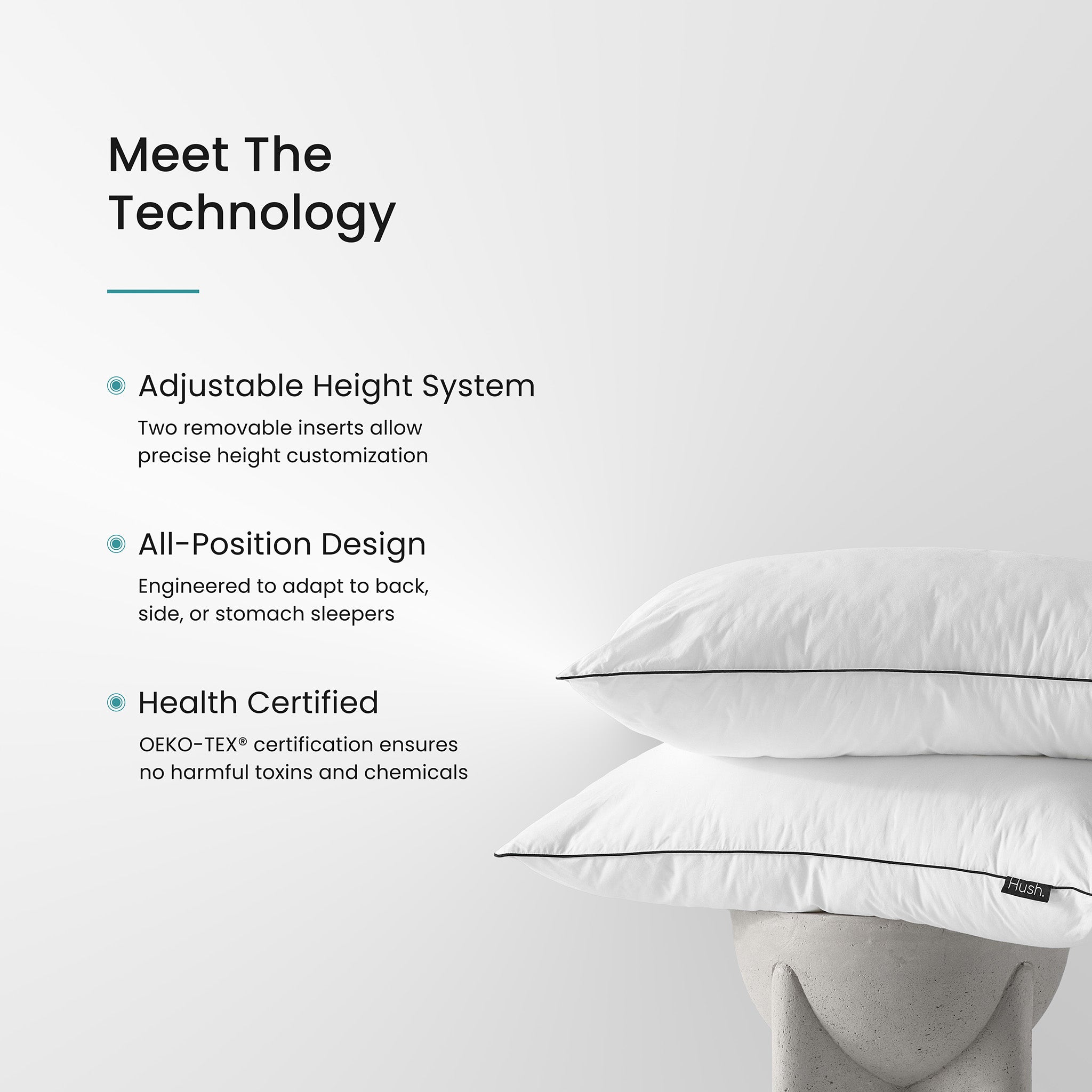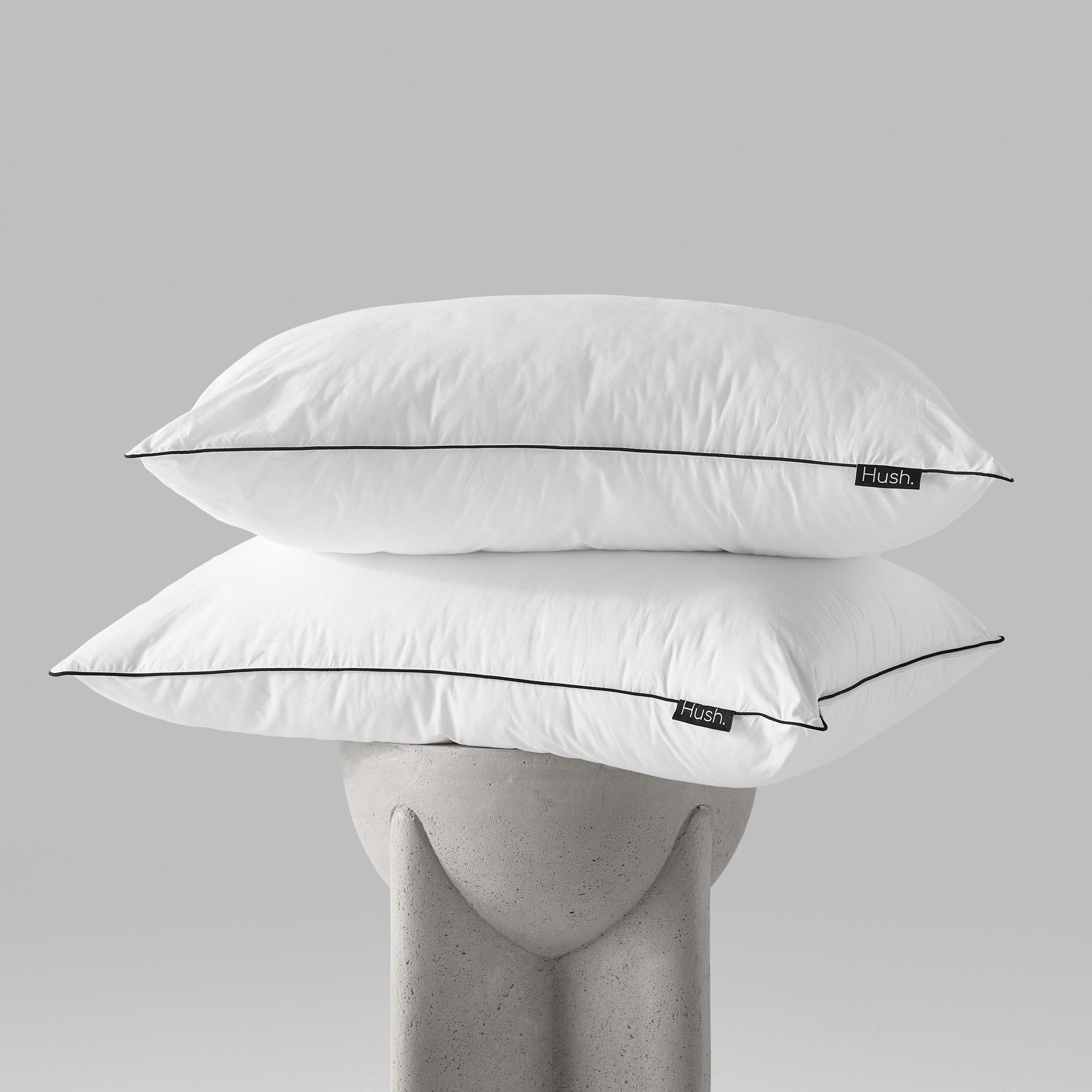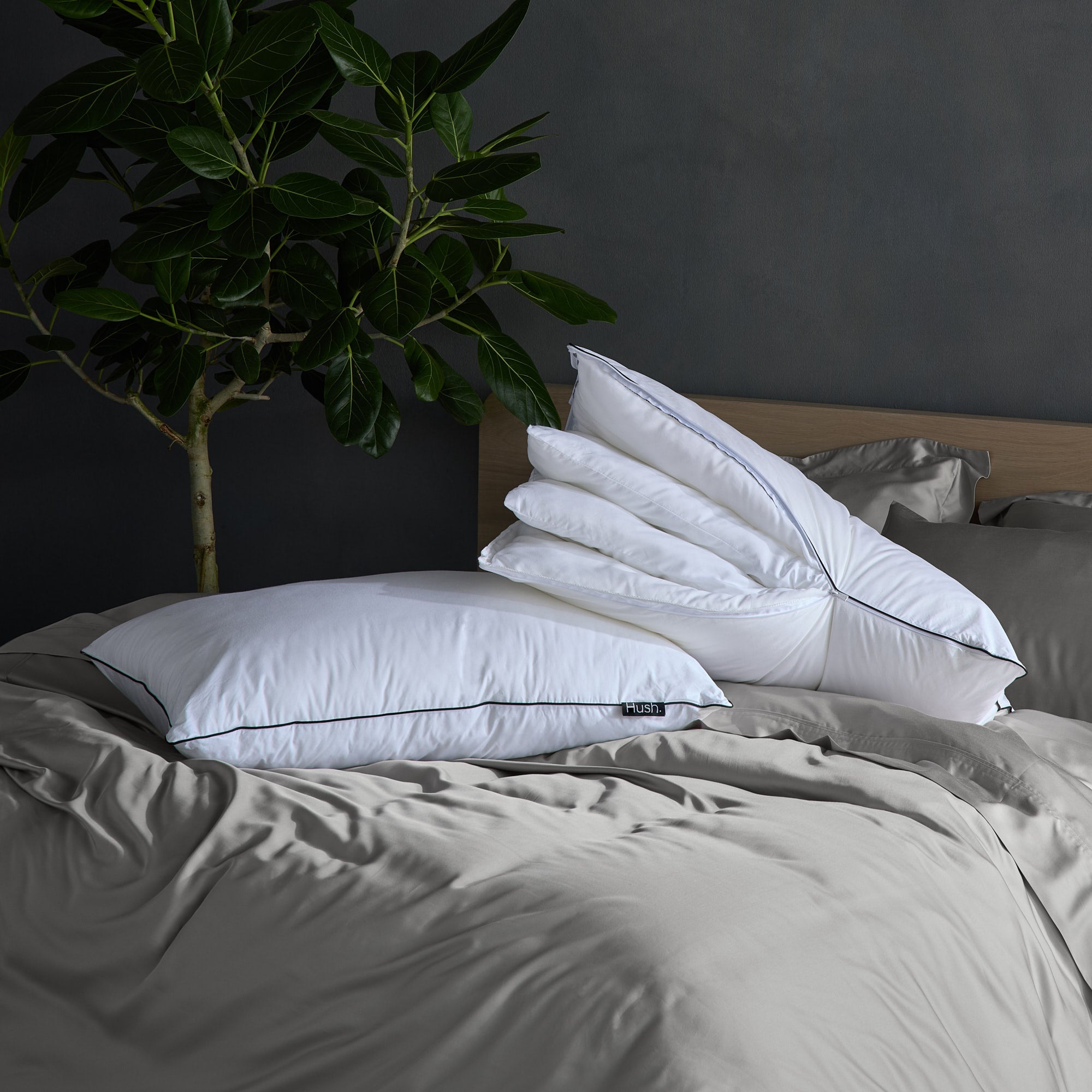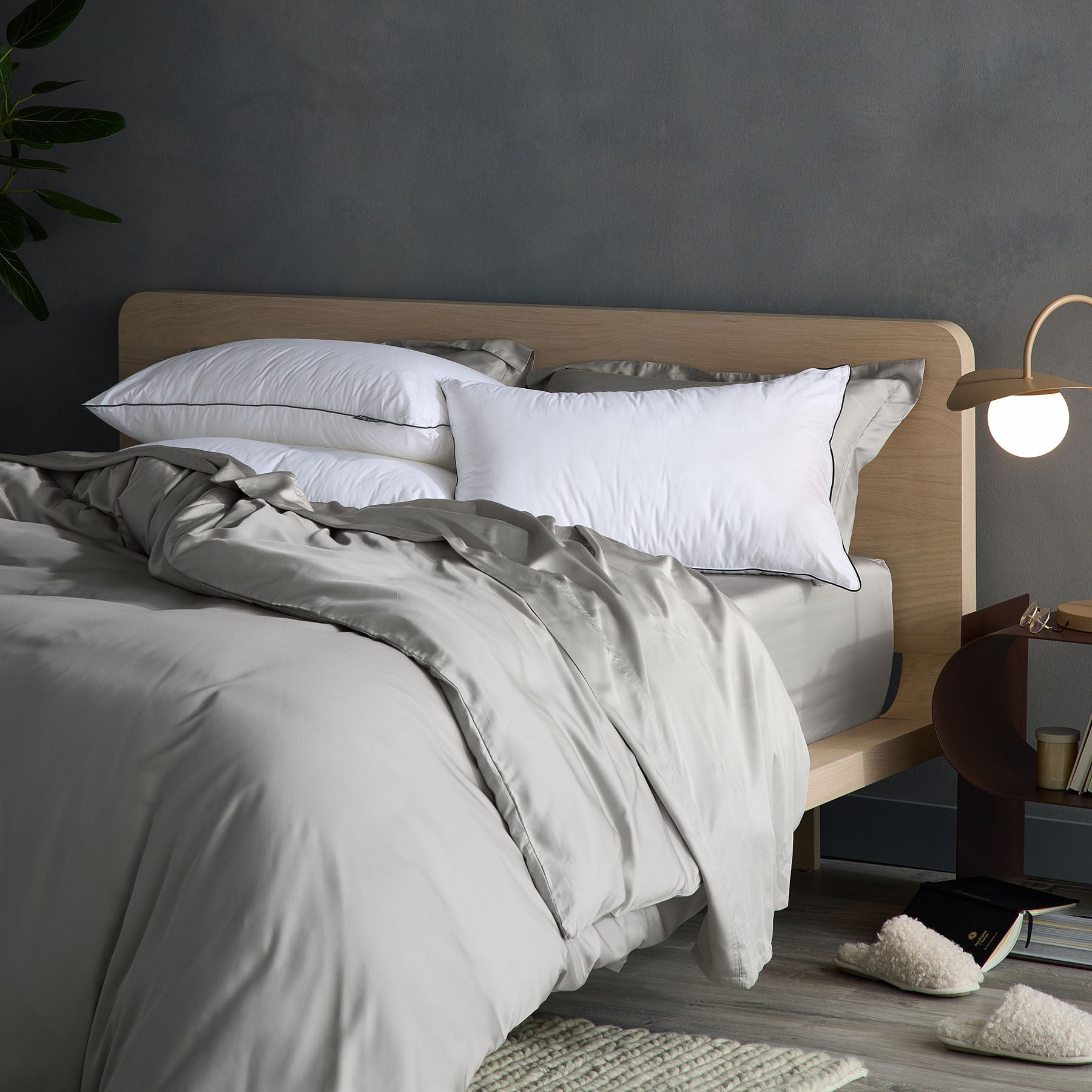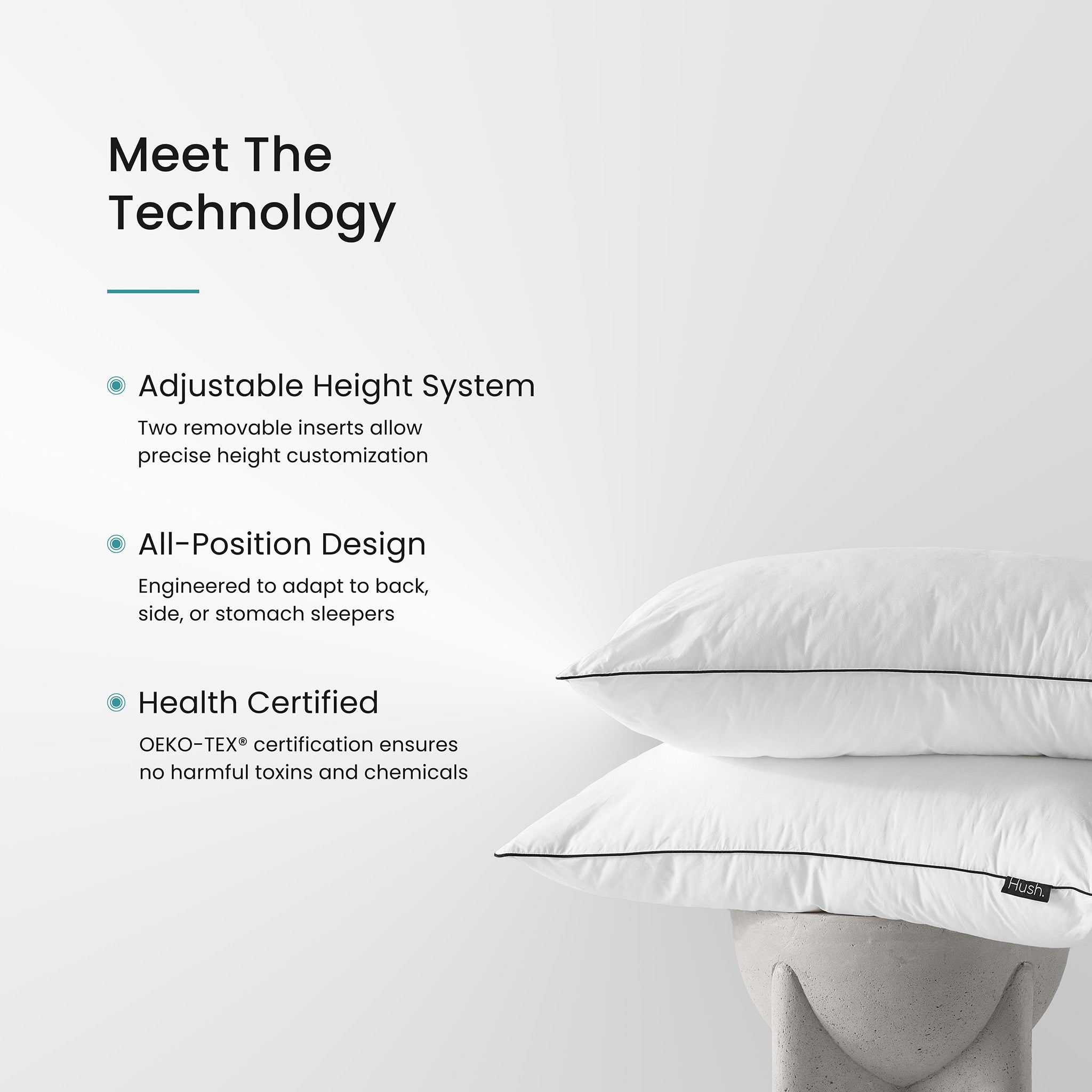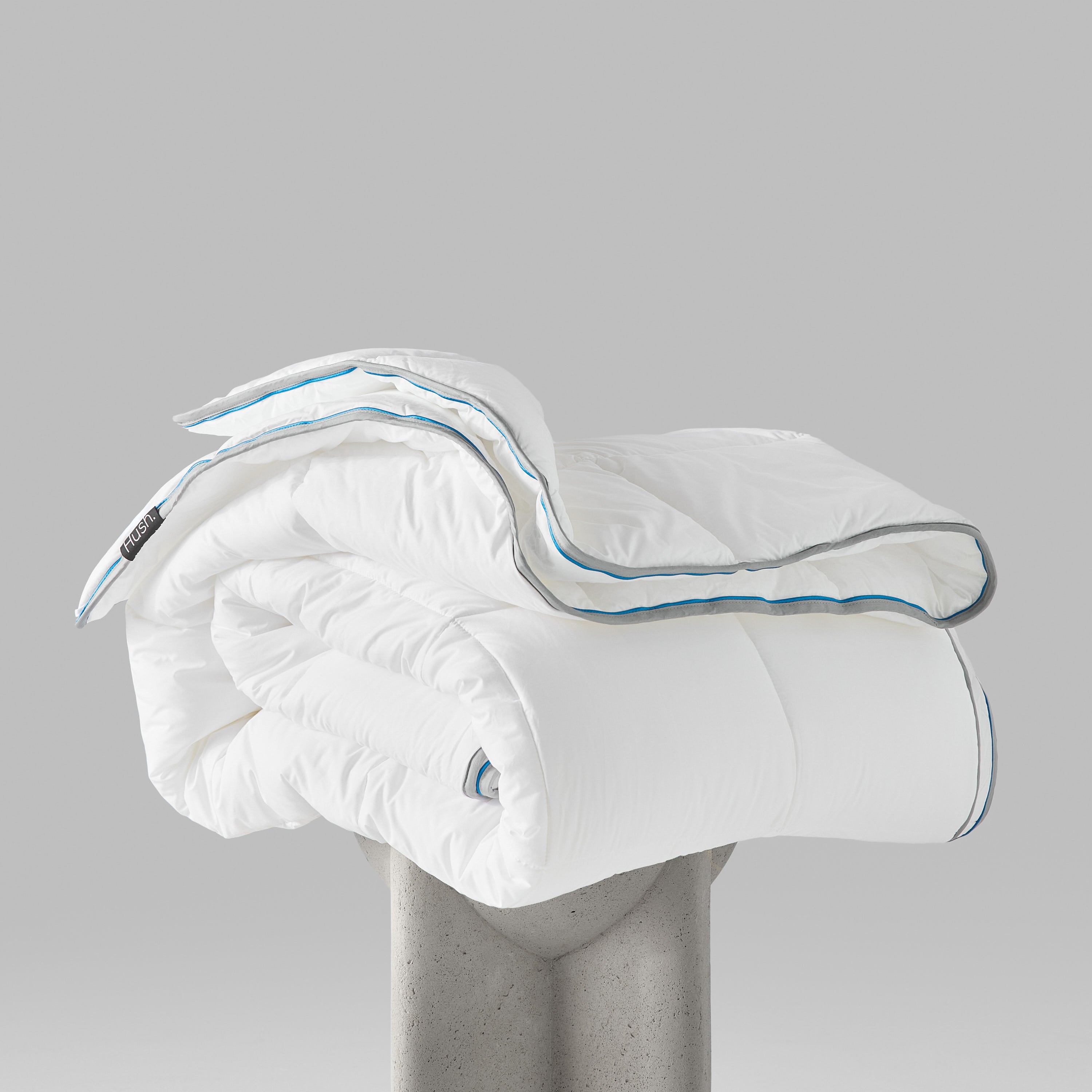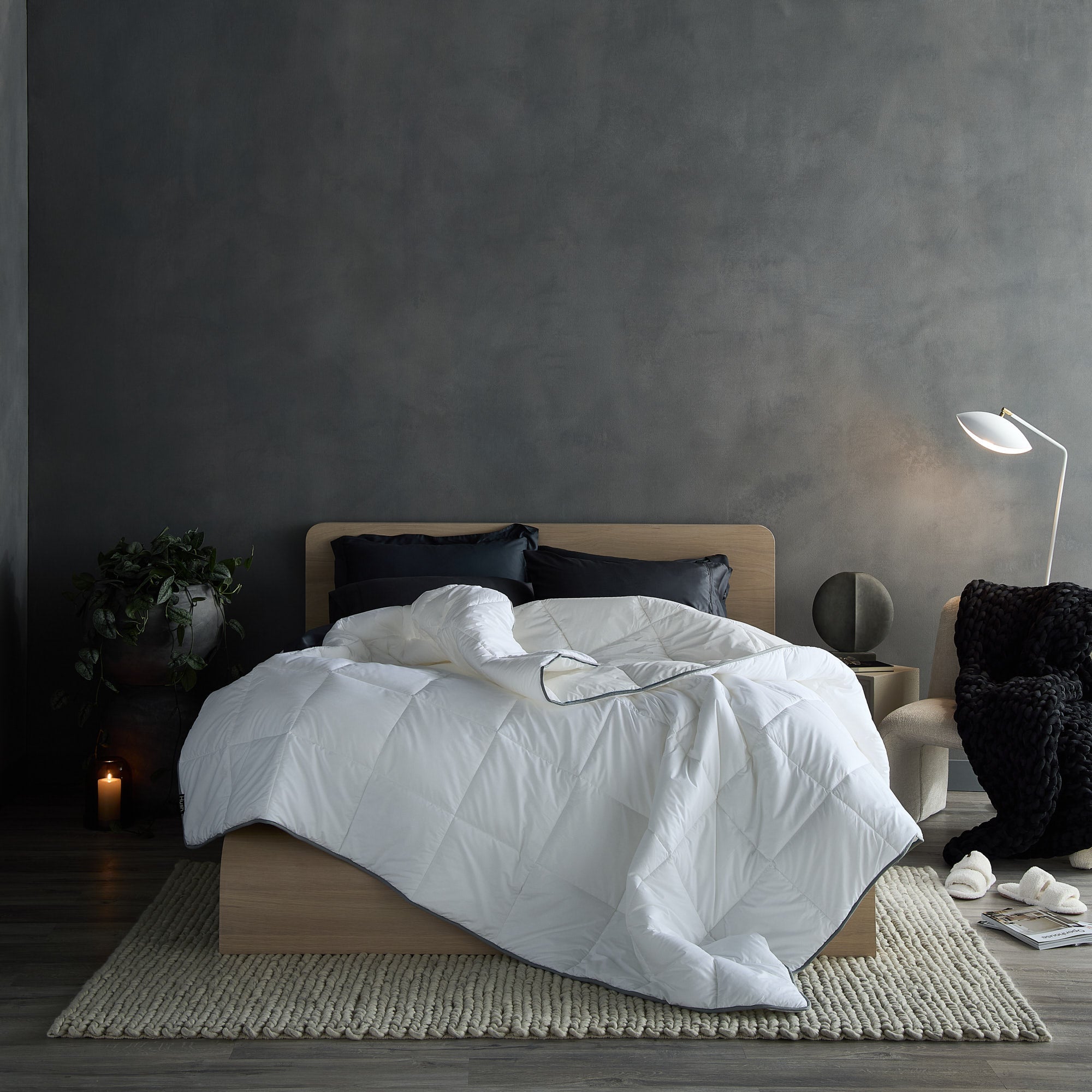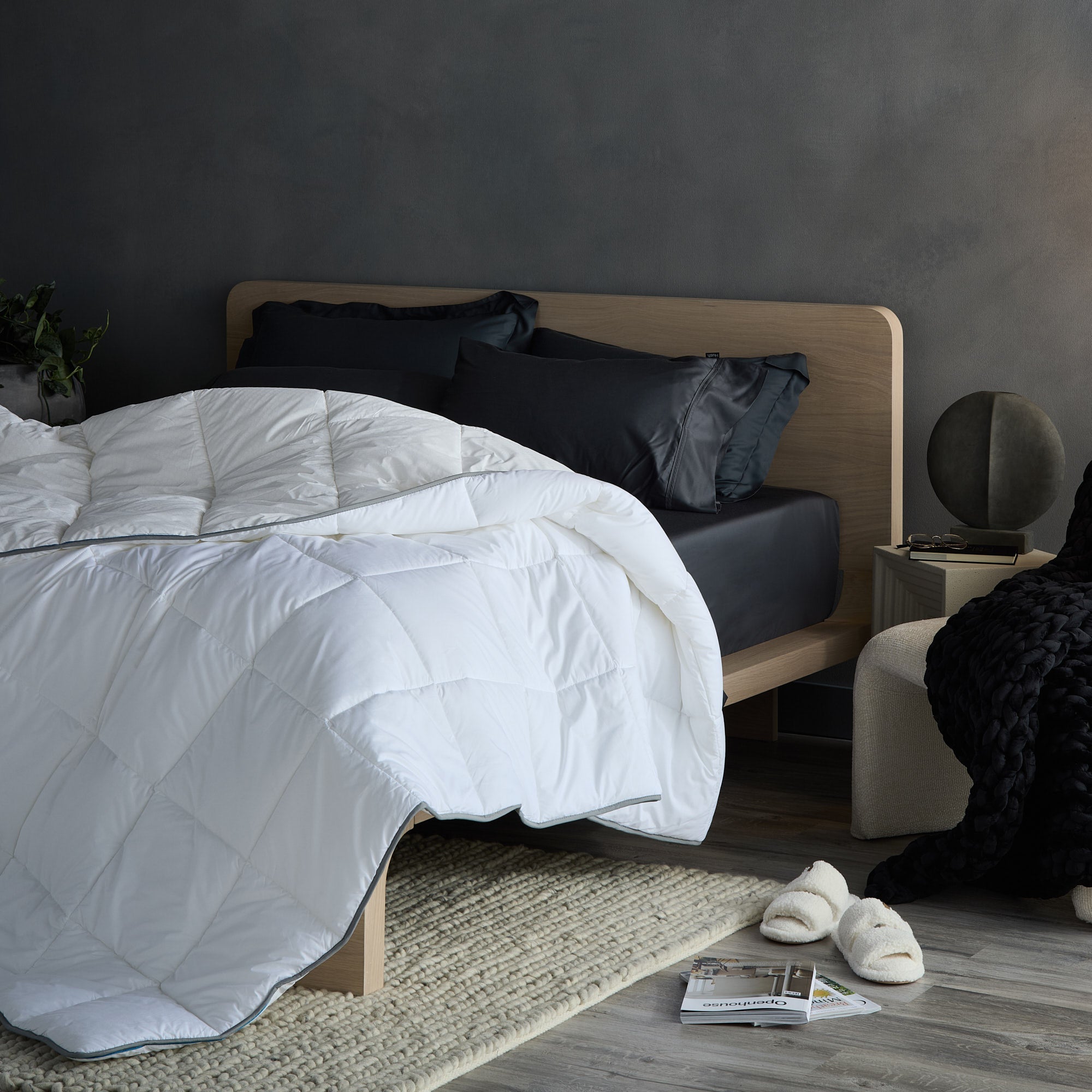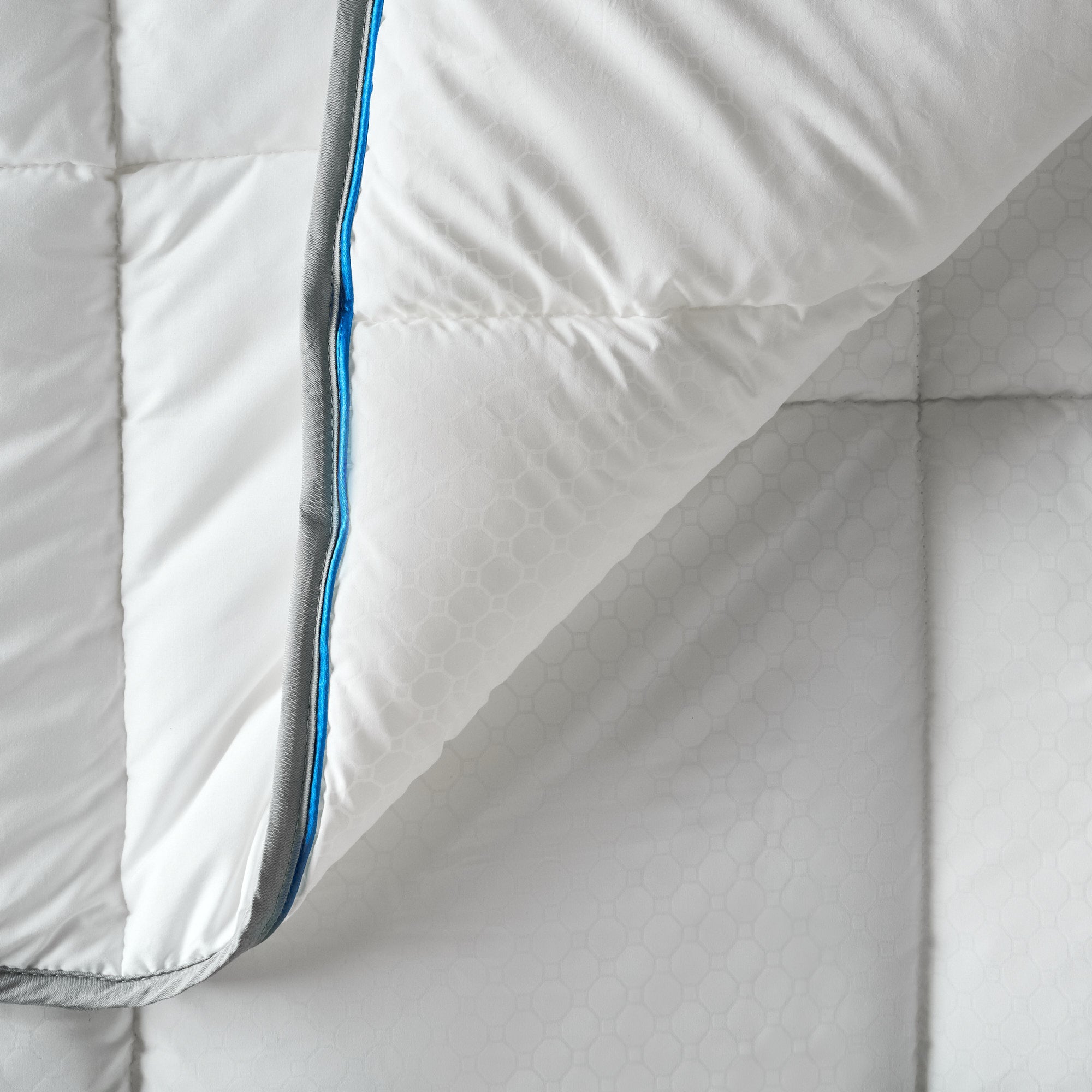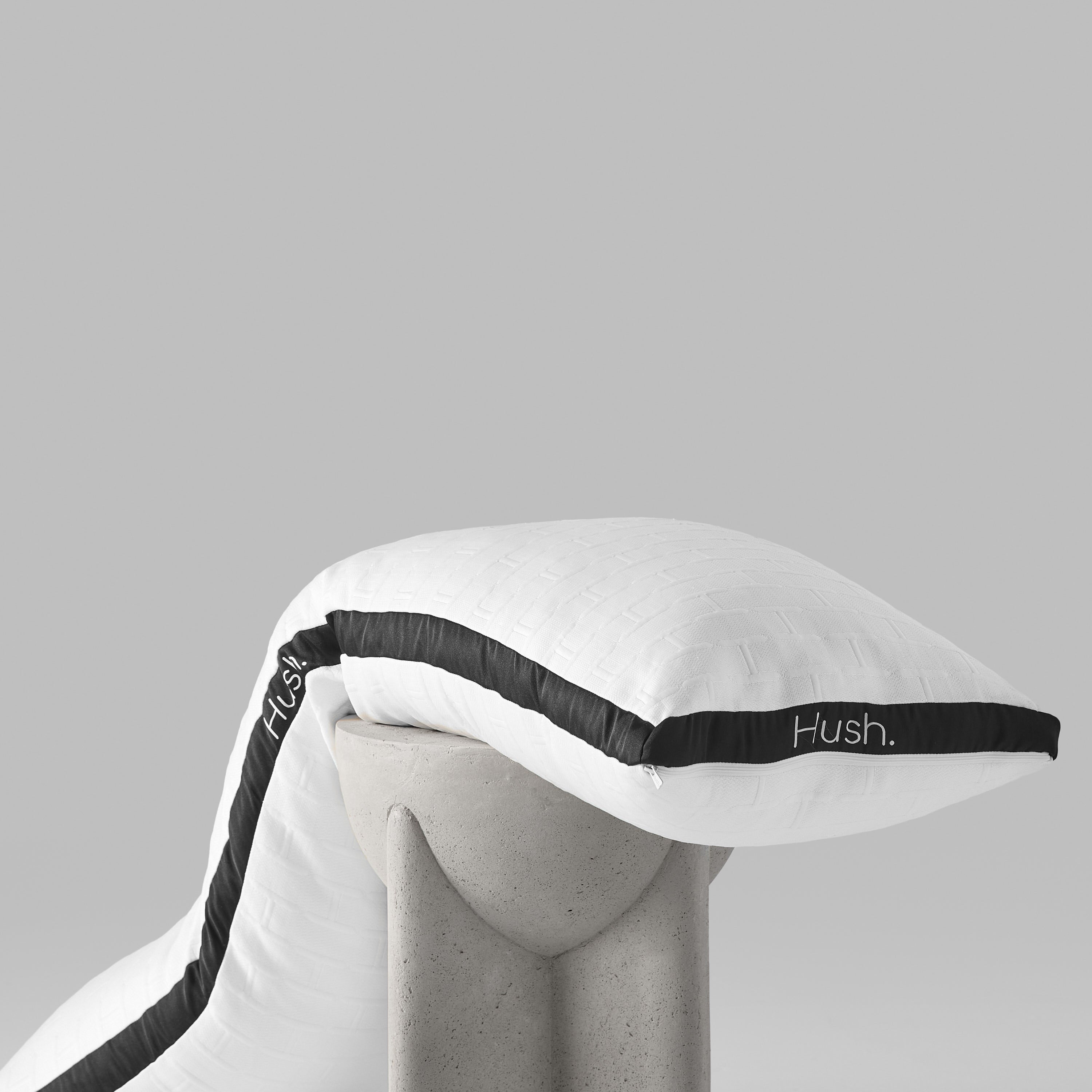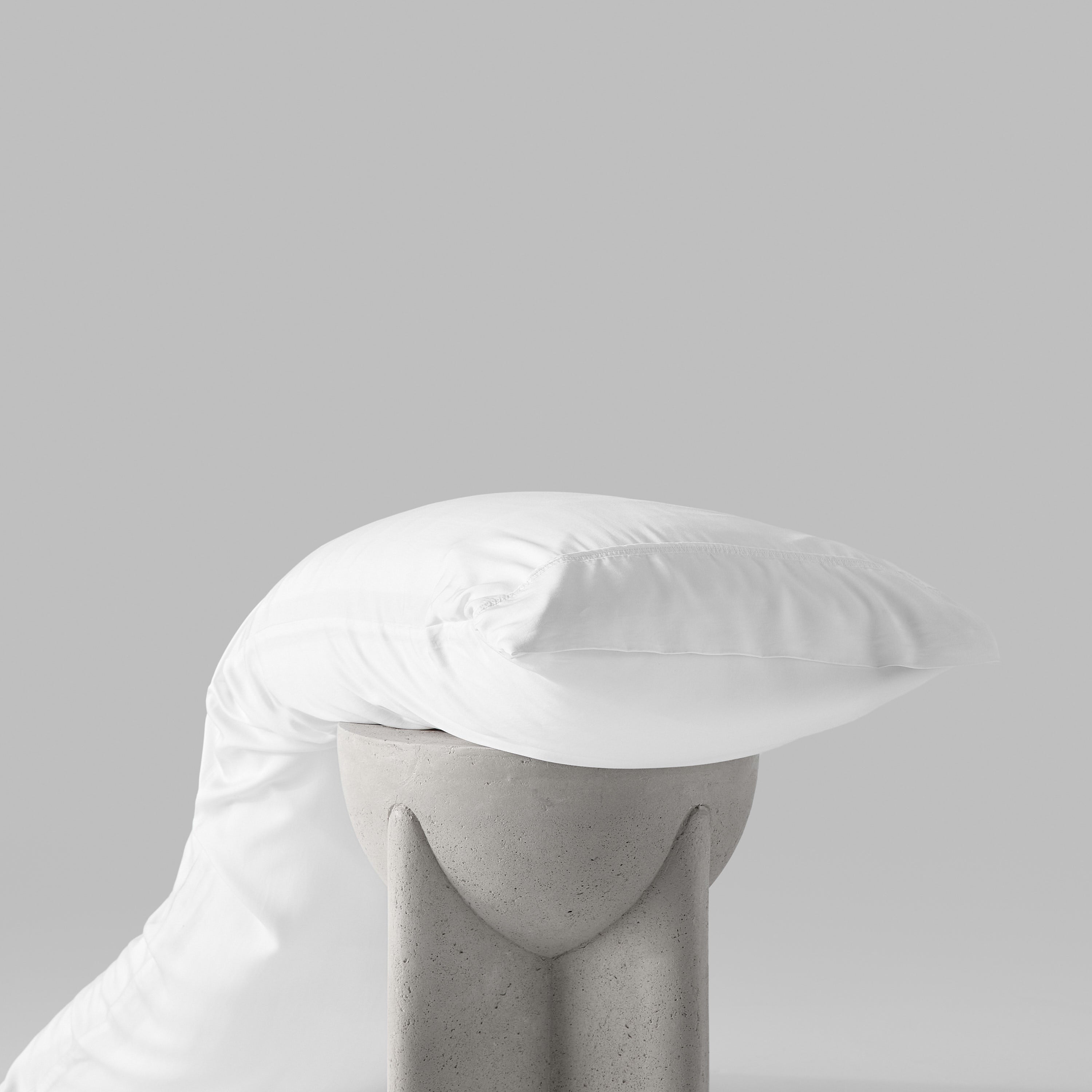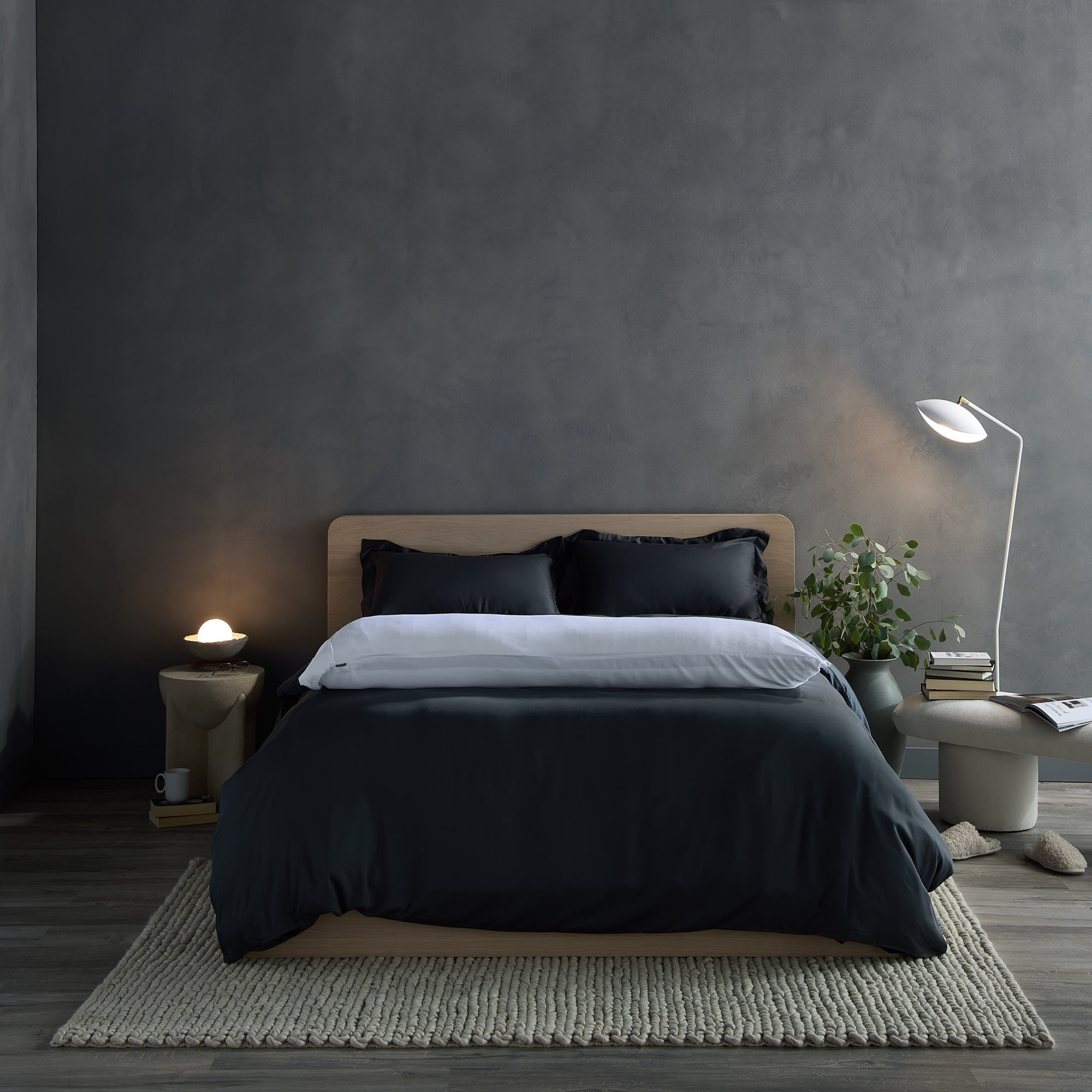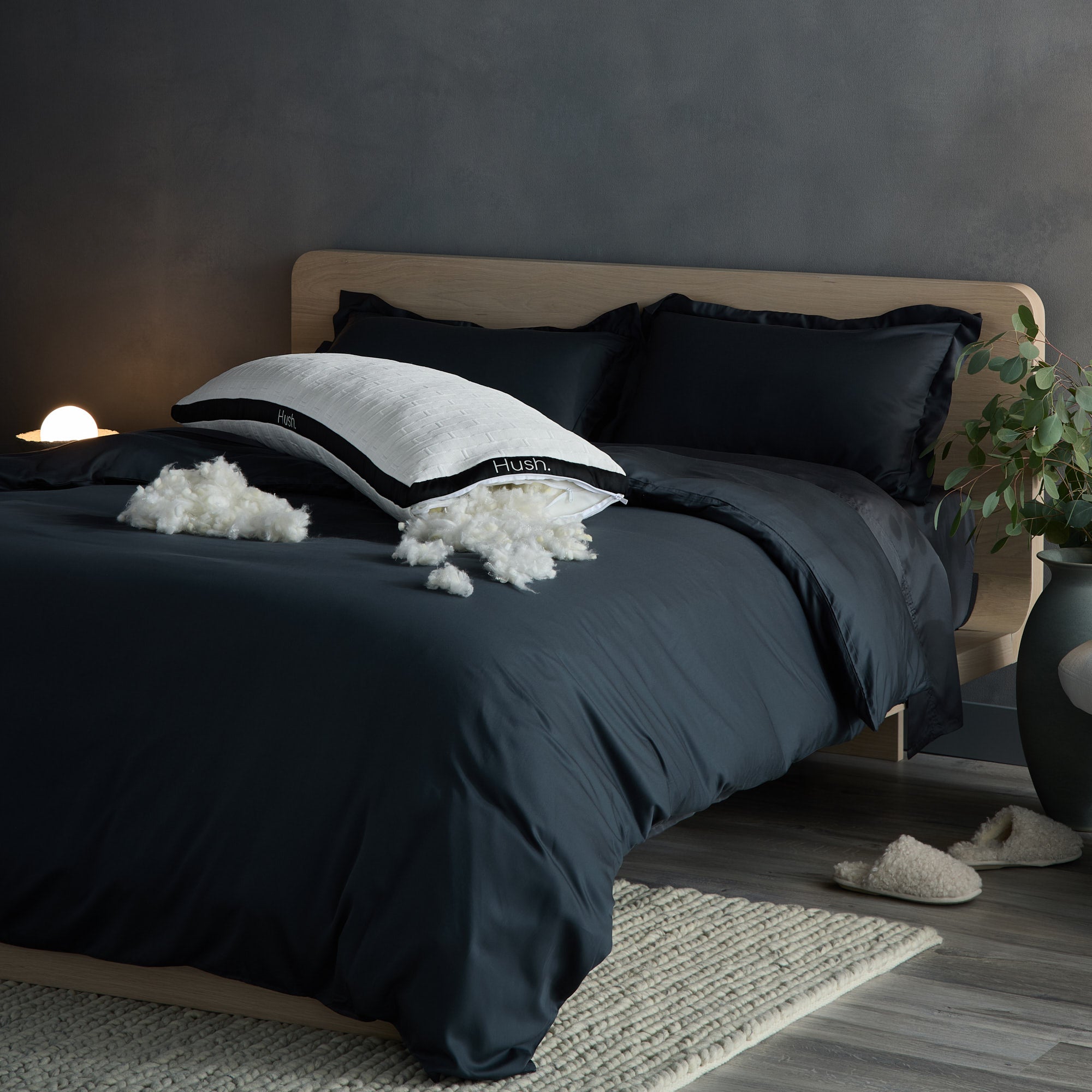Parents with newborns don’t expect to sleep much. As they grow up, we’re not surprised to be woken up by nightmares, lost “Stuffies,” or wet sheets. That said, somewhere along the line, we expect our young children to sleep through the night. When they can’t, we all wake up with puffy eyes and low energy.
Here are some common sleep issues kids can have and how a weighted blanket for kids can help get them (and us 😉) to dreamland a little faster.
P.S. Weighted blankets also work great if you're pregnant. If you're curious how they will affect your unborn child, check out our dedicated article: Weighted Blanket During Pregnancy: What You Need to Know
Common Sleep Issues for Kids
If the term “sleeping like a baby” doesn’t at all describe your child’s sleep, keep reading.
Mental Stress and Environment
Before you consider whether your child has insomnia or other disorders, talk to your child about their anxiety levels, whether their room is comfortable, and if anything has been bothering them lately.
Here are a few things to ask about and look for:
- Whether their bedroom’s temperature is too warm or too cold
- Any distractions (noise, light, hunger, thirst) they may experience during the night
- If your child’s been feeling fear, anxiety, or stress
- If they feel they have an awake mind and/or restless body (more on this below)
Learning how to go to sleep, and stay asleep, is important for all children. Helping your child develop good sleep hygiene will set them up for better sleep and better health in the future.
Insomnia
Insomnia is the inability to fall or stay asleep. It leads to poor sleep that leaves them foggy headed and fatigued the next day.
Children with insomnia may have trouble with:
- Crankiness
- Concentrating
- Falling asleep in the car
- Waking in the morning
- Crashing during the day
Everyone has trouble sleeping every once in a while. However, if this happens to your child several times a week, talk to your child. You can also talk to your child’s pediatrician to rule out any underlying problems.
Disorders
Some conditions that can cause child sleep disturbances are:
- Autism Spectrum Disorder
- ADHD
- ADD
If your pediatrician diagnoses your child with one of these disorders, seek help from a specialist and other support professionals. While only a licensed professional can say for sure if there is a more serious cause behind your child’s sleeplessness, you can start by reviewing this resource from Childmind.org.
Build Good Sleep Hygiene
Our kids receive a lot of input during the day, just like we do. For some of them, like autistic children, it can be hard to process what they see and hear, which leads to trouble winding down at night. If they are too active too close to bed, it can be hard for them to calm down in order to fall asleep.
For these children and others, it’s important to have a routine for quieting their minds and bodies. Here are some ideas you can use in your child’s relaxing sleep routine:
- Reduce or eliminate screen time at least two hours before bed. You can set timers on their devices or schedule them to shut down automatically.
- If needed, give your child a higher protein snack in the evening, like a protein bar or fruit with peanut butter, to hold off hunger.
- Play quiet games, like a board game or card game, or read with your child.
- Dim the lights and play soothing music, like ambient sounds or soft piano music in their room.
- Ask them to take a relaxing bath or shower.
- Use a white noise machine in their bedroom to block external sounds.
- Invest in a weighted blanket to support deep sleep.
How a Weighted Blanket for Kids Helps Them Get Restful Sleep

Weighted blankets can help your child sleep better by calming the nervous system. They offer deep pressure therapy, which can benefit your little one’s sleep in many ways (listed below).
Calms the Senses
Also used by occupational therapists, weighted blankets help kids soothe the nervous system through deep pressure stimulation. The weight works by gently pressing down on the nerves, which helps the nervous system slow down and react less so your child’s body and mind can calm down.
Provides Special Needs Support
Children with special needs, like Sensory Processing Disorder (SPD), Autism Spectrum Disorder, or hyperactivity can especially benefit from sleeping with a weighted blanket. The heavy touch all over the body decreases cortisol (and increases melatonin) which helps kids calm down, fall asleep, and remain asleep, according to a study in the American Journal of Occupational Therapy. They also noted that kids who used a weighted blanket got better sleep that improved how they felt during the day.
Helps Kids Fall Asleep Faster
Another study on kids and sleep in the British Medical Journal showed that a heavy blanket helped children fall asleep faster. Because of this, kids who used a weighted blanket at night got more hours of sleep and therefore showed improved attention, behavior, and general activity at school.
Improves Mental Health
According to The Journal of Sleep Medicine and Disorders, a weighted blanket can increase comfort, deliver a better quality of sleep, and help children feel more secure in their beds. These lead to a better quality of sleep, which helps children feel better about themselves and their world. When children are well-rested, they are more confident, more positive, and more able to deal with setbacks during the day.
Supports Deeper Sleep
The same article also reveals that kids who use a weighted blanket move around less while they sleep and report calmer sleep. With these blankets, children can get deeper sleep for longer. In deep sleep, the muscles of your body completely relax, which makes you feel rested. Better, deeper sleep helps you wake up more refreshed.
Weighted Blankets Are Safe
Weighted blankets are also safe for kids (even unborn children if you're pregnant!). Just make sure to get a kid-sized blanket so it won't be too heavy and uncomfortable.
What To Look for in a Weighted Blanket for Kids
So you’re ready to invest in your child’s sleep and get them a weighted blanket. That’s awesome, but there are some features you’ll want to consider. Here’s how to find the best weighted blanket for your child.
Body Weight
When purchasing a weighted blanket, pay attention to your child’s weight and the weight of the blanket. Choose a blanket that is 10% of your child’s body weight. Because children grow so quickly, the blanket can be a few pounds heavier than this, but it should be light enough that your kiddo can move it on and off of their body by themselves. Also, a weighted blanket is best for older children and is not recommended for children under the age of three years old.
Type of Cover
There are different types of covers for kids weighted blankets. Cotton is a common cover material — it’s breathable and lightweight. There’s also minky fabrics, which are warm and snuggly. Other options include different weaves (knitted, flat, and quilted), and the Iced 2.0 cooling blanket made from 100% viscose bamboo. If your child has any sensory issues or allergies, you will also want to consider choosing a hypoallergenic fabric to make sure there are no skin irritations. Finally, make sure you choose one in a cool print your child can get behind. This is a great opportunity to get them excited about a weighted blanket. Hush offers fun patterns like Paw Patrol, unicorns, and spaceships.
Type of Filler
Common fillers for weighted blankets include poly pellets, or plastic pellets, and glass beads. They all work by evenly distributing the weight throughout the blanket pockets. Then, when your kiddo snuggles in, it surrounds them with gentle pressure. Glass beads tend to be more breathable, which makes your heavy blanket cooler. If your child runs hot, non-toxic glass beads, like those in Hush Blankets, are the better choice for you.
Machine Washable
Let’s be honest. Our little ones can wet the bed or make spills, so a weighted blanket for kids should be machine washable. However, even if the weighting mechanism isn’t machine washable, look for a washable duvet cover that can be easily removed and thrown in the wash. Trust us, it will make your life a million times easier.
Not Just for Sleep

An additional benefit of investing in a weighted blanket for kids is they can use it any time while at home. The deep touch pressure can be useful whenever your kid is feeling overwhelmed, over-stimulated, or out of control.
Like a weighted lap pad, a weighted blanket gives your child the space to take a break when they need it. When they are overstimulated or having a temper tantrum, they are showing that they need a safe space to decompress. They can cuddle in the blanket to calm down and refocus. The blankets are small enough to travel around the house (or even in the car).
Children who have better self-regulation skills tend to have better focus and overall contentment, according to The Hanen Center. Teaching them to use the weighted blanket to self-regulate will help them learn this important skill.
Better Sleep for Your Little One and You

When you have a child who struggles to sleep, every night can turn into a nightmare. With some help, your child and you can get more sleep and feel rested in the mornings.
A weighted blanket for kids gives you support in creating a nighttime routine that relaxes and eases your child into deep, restful, continuous sleep. Invest in a weighted blanket for your child today, and everyone can be sleeping better soon.

